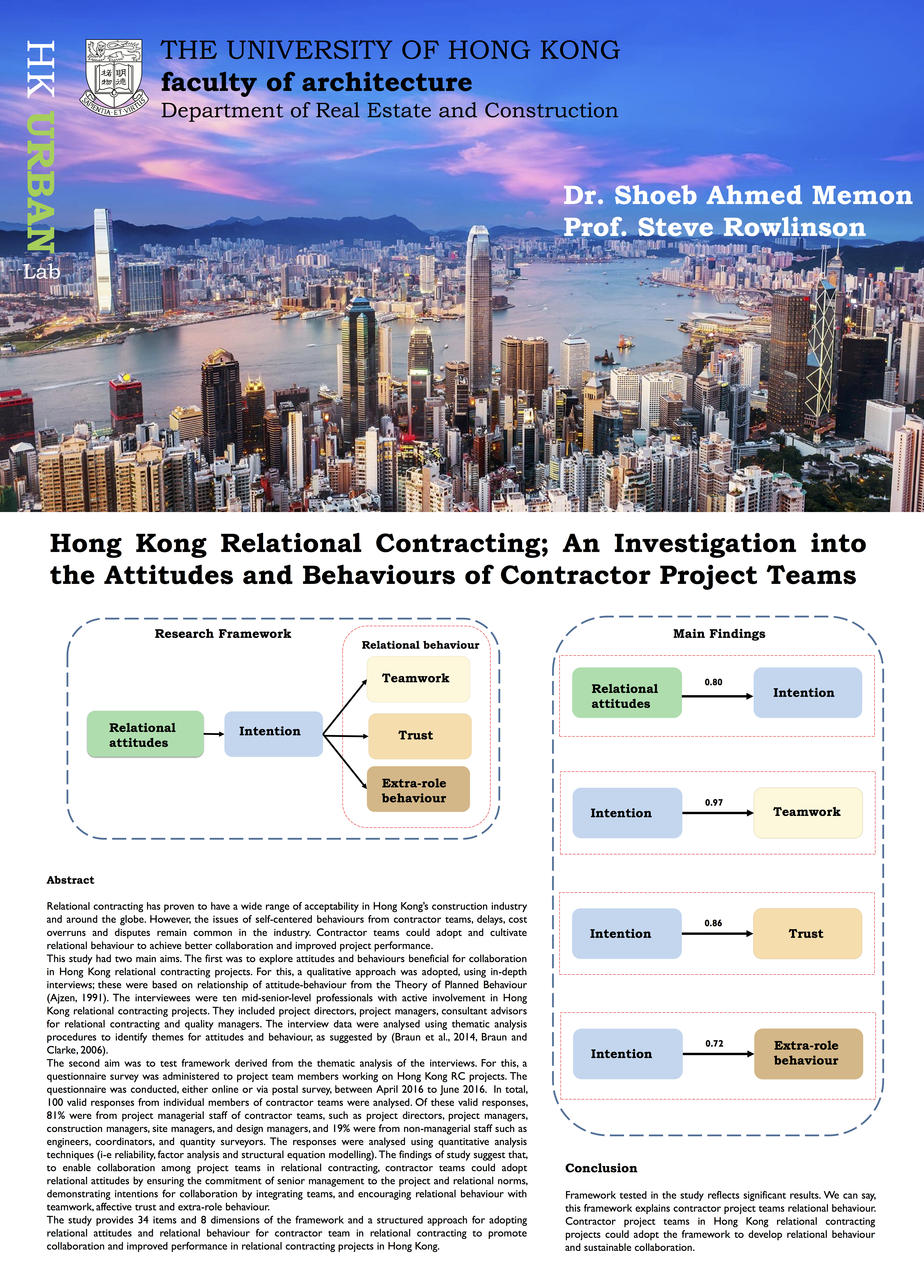
Hong Kong Relational Contracting; An Investigation into the Attitudes and Behaviours of Contractor Project Teams
Dr. Memon, Shoeb Ahmed
Dr. Memon, Shoeb Ahmed completed his PhD in Construction Management from Department of Real Estate and Construction, Hong Kong in 2017. His PhD research focuses on relational contracting in Hong Kong. He received his Master of Engineering in Construction Engineering & Infrastructure Management from Asian Institute of Technology, Thailand in 2013 and Bachelor’s degree from Mehran University of Engineering & Technology, Pakistan in Architecture Design.


Abstract
Relational contracting has proven to have a wide range of acceptability in Hong Kong’s construction industry and around the globe. However, the issues of self-centered behaviours from contractor teams, delays, cost overruns and disputes remain common in the industry. Contractor teams could adopt and cultivate relational behaviour to achieve better collaboration and improved project performance.
This study had two main aims. The first was to explore attitudes and behaviours beneficial for collaboration in Hong Kong relational contracting projects. For this, a qualitative approach was adopted, using in-depth interviews; these were based on relationship of attitude-behaviour from the Theory of Planned Behaviour (Ajzen, 1991). The interviewees were ten mid-senior-level professionals with active involvement in Hong Kong relational contracting projects. They included project directors, project managers, consultant advisors for relational contracting and quality managers. The interview data were analysed using thematic analysis procedures to identify themes for attitudes and behaviour, as suggested by (Braun et al., 2014, Braun and Clarke, 2006).
The second aim was to test framework derived from the thematic analysis of the interviews. For this, a questionnaire survey was administered to project team members working on Hong Kong RC projects. The questionnaire was conducted, either online or via postal survey, between April 2016 to June 2016. In total, 100 valid responses from individual members of contractor teams were analysed. Of these valid responses, 81% were from project managerial staff of contractor teams, such as project directors, project managers, construction managers, site managers, and design managers, and 19% were from non-managerial staff such as engineers, coordinators, and quantity surveyors. The responses were analysed using quantitative analysis techniques (i-e reliability, factor analysis and structural equation modelling). The findings of study suggest that, to enable collaboration among project teams in relational contracting, contractor teams could adopt relational attitudes by ensuring the commitment of senior management to the project and relational norms, demonstrating intentions for collaboration by integrating teams, and encouraging relational behaviour with teamwork, affective trust and extra-role behaviour.
The study provides 34 items and 8 dimensions of the framework and a structured approach for adopting relational attitudes and relational behaviour for contractor team in relational contracting to promote collaboration and improved performance in relational contracting projects in Hong Kong.
If you are interested in Dr. Memon’s research, you are welcomed to contact him directly or contact us. Thanks for your support!

